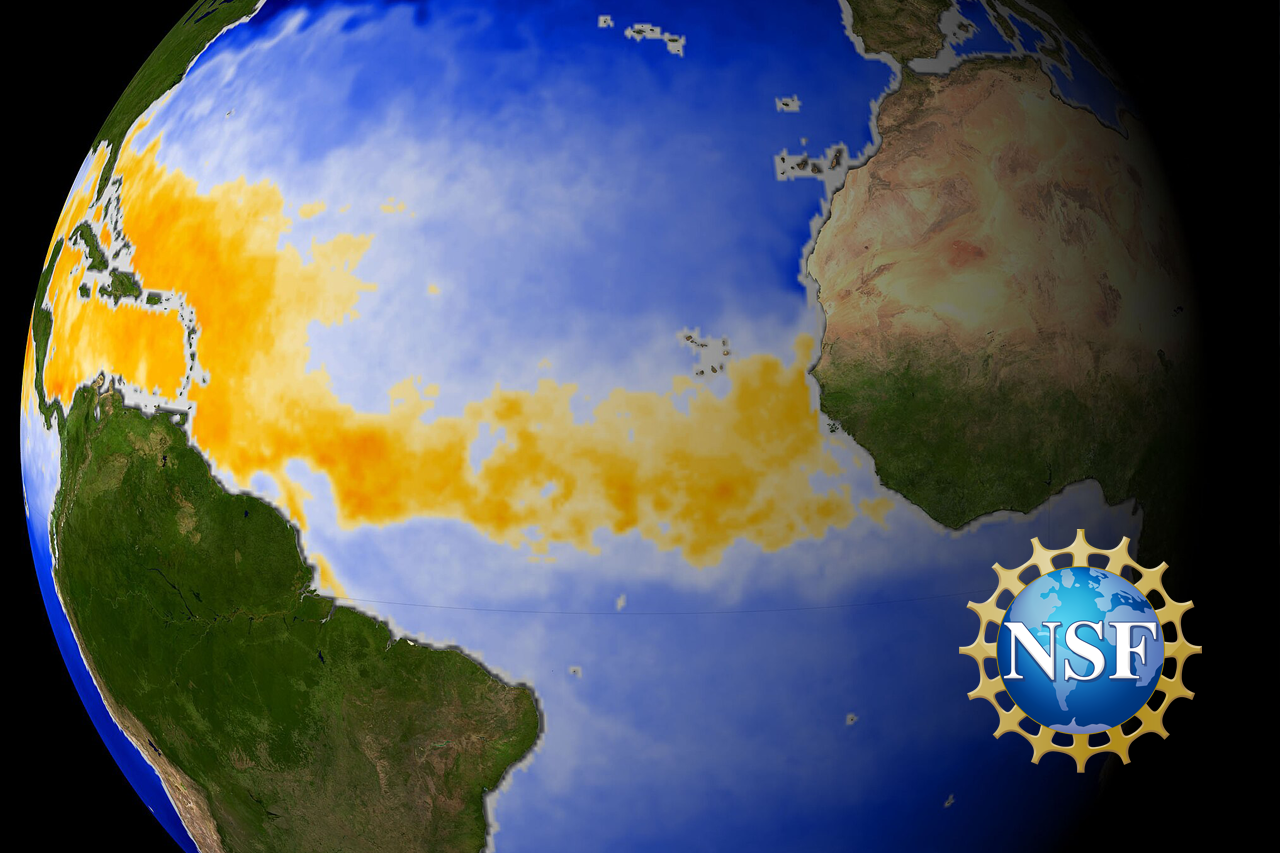NSF Grant to Study Vulnerable Communities in ‘Hurricane Alley’
Wednesday, Aug 28, 2024
Image: Hurricane Alley as photographed by NASA
The Department of Anthropology has been awarded a $650,000 grant from the National Science Foundation to study communities in South Florida and Puerto Rico that are vulnerable to environmental instabilities like hurricanes. The grant, led by Adriana Garriga-Lopez, Ph.D., associate professor of anthropology and comparative studies, and Katharina Rynkiewich, Ph.D., assistant professor of anthropology, along with researchers from the University of Puerto Rico, is titled “Rhizomatic Nexus: Cultural Dimensions of Ecological Instability.”
 Image left: Adriana Garriga-Lopez, Ph.D.; Katharina Rynkiewich, Ph.D.
Image left: Adriana Garriga-Lopez, Ph.D.; Katharina Rynkiewich, Ph.D.
The award supports three years of research which will take place in South Florida and Puerto Rico at various farms, community organizations, hospitals and other institutions, and by meeting with key leaders and members of populations living in areas directly affected by ecological instability. The research will result in the development of tandem ethnographic laboratories and research training hubs at the two collaborating institutions.
“Ethnography offers a unique lens through which we can understand the cultural and social adaptations that individuals and communities are making in response to environmental instability,” said Adriana Garriga-López. “By documenting these responses, we gain valuable insights into the interplay between ecological changes and cultural practices. This knowledge is essential for developing and refining strategies aimed at mitigating harm and enhancing adaptability.”
Understanding cultural responses and adaptation to ecological instability can generate important and actionable insights that connect communities and individuals across and beyond the Caribbean, including coastal communities and island societies around the world. Documenting and analyzing how people enact cultural responses to ecological and social instability can help researchers generate and fine tune strategies to safeguard collective survival.
“Our project is focused on building interdisciplinary networks and capacities,” said Katharina Rynkiewich, Ph.D., co-PI and an assistant professor in FAU’s Department of Anthropology. “We aim to be a central hub for scholars using ethnographic methods to study cultural responses to ecological instability in tropical and subtropical regions. Our research also emphasizes community outreach and participatory action research, centered on the Rhizomatic Nexus theme of everyday experiences with environmental change.”
FAU will receive $345,000 of the award and the remainder will go towards the work at the University of Puerto Rico in Cayey. The Principal Investigator there is Patria Celeste Lopez de Victoria, Ph.D., associate professor of English and her Co-Principal Investigator is Patricia Noboa Ortega, Ph.D., professor of social science.
“This collaborative research project funded by the National Science Foundation will generate new opportunities for students to engage in multidisciplinary research, learn from experts, engage in research design, data collection, and sample analysis, attend conferences, and connect with leading scholars across the region,” said Michael J. Horswell, Ph.D., dean, FAU Dorothy F. Schmidt College of Arts and Letters. “Additionally, through the ethnography labs and training programs at both institutions, students will develop valuable skills in qualitative research and analysis, preparing them for careers in research-centered fields.”
NSF funded this research specifically through the program Build and Broaden: Enhancing Social, Behavioral and Economic Science Research and Capacity at Minority-Serving Institutions (B2) program, which aims to generate critical research infrastructure and collaboration at universities deemed to be minority-serving institutions.


